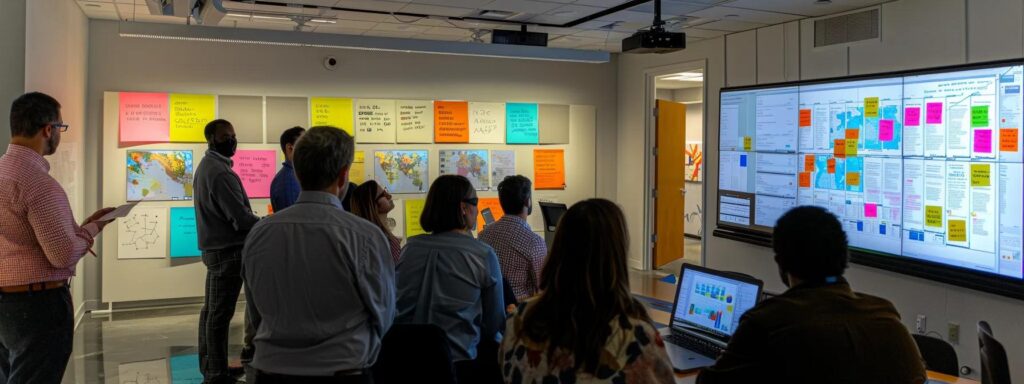In a world marked by disruption—whether from climate events, geopolitical tensions, supply chain breakdowns, or social unrest—leaders can no longer afford to treat crisis management as a reactive function. The most resilient organizations are those that integrate sustainability consulting, corporate social responsibility (CSR) programs, and crisis management planning into one cohesive strategy.
At Jon Bassford Consulting, we help organizations not just survive turbulence but lead through it—anchored by strong values, operational agility, and stakeholder trust.
The Modern Crisis Landscape
Today’s crises don’t come in predictable packages. Businesses now face multifaceted threats, such as:
Environmental disasters linked to climate change
Global health pandemics
Cybersecurity attacks
Regulatory shifts driven by ESG policy
Reputational risks from ethical or social failings
These risks impact more than operations—they affect brand credibility, investor relations, workforce stability, and long-term viability.
That’s why our clients rely on us to go beyond traditional contingency plans. We build sustainable crisis response systems designed for dynamic, high-stakes environments.
Why Sustainability Matters in a Crisis
Sustainability isn’t just a long-term strategy—it’s a short-term shield. Organizations that invest in sustainable practices tend to:
Use fewer finite resources (reducing vulnerability to supply shortages)
Have stronger supplier partnerships and ethical procurement standards
Comply with ESG regulations proactively, avoiding fines and shutdowns
Maintain positive reputations, making recovery easier during public crises
Our sustainability consulting services incorporate risk mapping, carbon impact analysis, and resilience audits into strategic planning. This allows businesses to adapt faster when disruptions occur.
Learn more about our sustainability frameworks on our media page.
CSR: The Foundation of Stakeholder Trust
Trust is the currency that organizations trade on during times of crisis. If your business has spent years investing in its community, treating employees fairly, and acting transparently, you’re more likely to retain support when things go wrong.
Well-designed corporate social responsibility (CSR) programs can:
Build long-standing goodwill with employees, customers, and partners
Strengthen internal morale and retention during challenging times
Provide a platform for meaningful recovery and giving back
Enhance the public perception of your leadership and accountability
CSR isn’t just about donations—it’s about weaving responsibility into your business DNA.
Crisis Management Planning That Works
At Jon Bassford Consulting, our approach to crisis management is proactive, strategic, and deeply human. We help clients:
Conduct scenario planning for high-impact risks
Develop comprehensive business continuity plans
Establish clear communication strategies for stakeholders and media
Build cross-functional response teams trained in ESG-sensitive decisions
Integrate crisis planning with broader sustainability and governance policies
Unlike one-size-fits-all templates, our solutions are customized to each organization’s values, markets, and vulnerabilities.
See examples of our adaptive leadership work on the blog.
Case Study: Resilience in Action
A national logistics company approached us following a regional natural disaster that disrupted their entire supply chain. While they had emergency plans, those lacked ESG integration, vendor engagement, or community communication strategies.
Our intervention:
Conducted a post-crisis sustainability audit
Rebuilt the crisis plan around environmental and social resilience
Introduced a CSR framework to aid displaced workers and local recovery
Trained leadership on stakeholder communication and brand restoration
Six months later, the company not only resumed operations but was publicly recognized for its crisis response leadership.
The Power of Integrated Planning
When sustainability, CSR, and crisis management are siloed, response is slower and less effective. When aligned, these three areas create a system of resilience:
Sustainability reduces exposure to long-term systemic risk
CSR builds goodwill and stakeholder support in critical moments
Crisis planning turns values into action when the pressure is highest
Our team ensures your values are not just stated—but activated—when you need them most.
Leadership’s Role in Crisis-Ready Cultures
The most successful crisis responses aren’t born in the war room—they’re cultivated in the boardroom. Leadership alignment around values and preparation is key.
We help executives:
Integrate ESG metrics into board oversight
Run “ethical stress tests” to see how values hold under pressure
Design training programs for middle managers on response leadership
Use crises as opportunities to double down on mission, not deviate from it
Jon’s perspective on values-based leadership is available in depth on the author page.
Questions to Future-Proof Your Organization
If you’re serious about building resilience through purpose, start by asking:
How well does our crisis plan reflect our sustainability goals?
Are our CSR programs relevant to the communities we impact most?
Do we have defined ESG responsibilities at every leadership level?
Can we quantify the social and environmental costs of potential disruptions?
Will our stakeholders trust us to lead through the next crisis?
If any of these raise concern, we can help turn uncertainty into a roadmap.
Conclusion: Leading with Clarity, Responding with Courage
Crises are inevitable. What defines an organization is how prepared, values-driven, and human it remains when facing the unexpected.
At Jon Bassford Consulting, we help leaders fuse sustainability, social responsibility, and crisis planning into one strategic foundation. The result? Organizations that are not only protected—but poised to lead.

